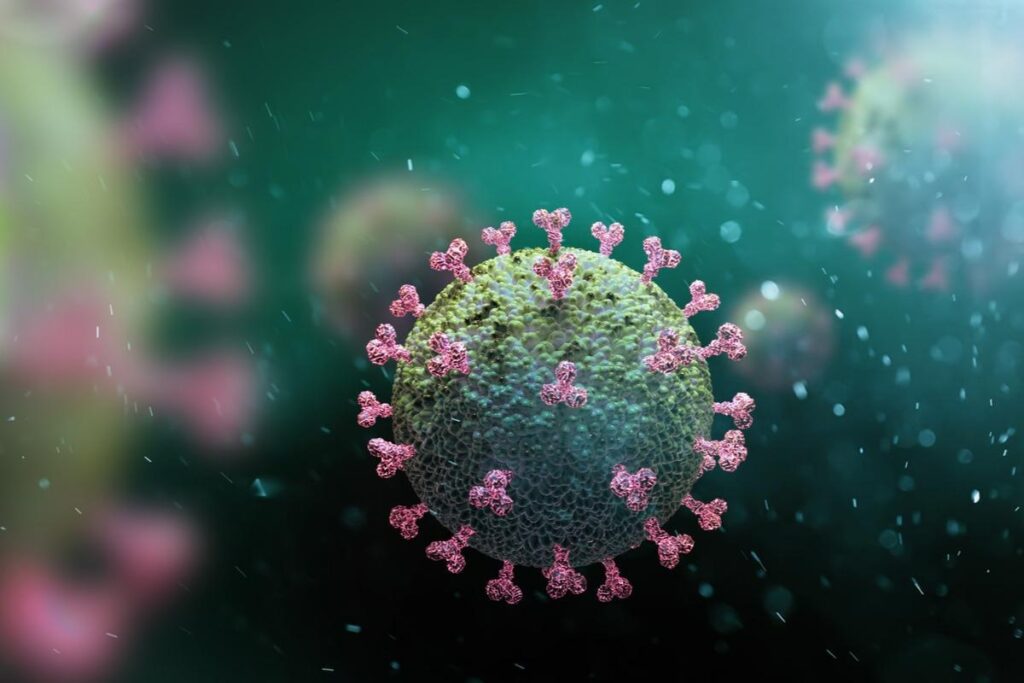Coronavirus illness 2019 (COVID-19) first emerged in Wuhan, China, and has since unfold worldwide. The fast transmission charge compelled many international locations to enact expensive and restrictive measures within the hopes of controlling the illness, together with obligatory face masks, social distancing legal guidelines, and even full lockdowns and stay-at-home orders.
Examine: Nucleocapsid-specific humoral responses enhance the management of SARS-CoV-2. Picture Credit score: Andrii Vodolazhskyi/Shutterstock
The introduction of vaccines allowed these to be dismantled in lots of international locations, however with new variants persevering with to evade each vaccine-induced and pure immunity, extra analysis is required to make sure long-term safety.
Researchers from Northwestern College have been investigating the potential for vaccines and coverings towards the nucleocapsid protein of extreme acute respiratory syndrome coronavirus 2 (SARS-CoV-2).
A preprint of the paper may be discovered on the bioRxiv* preprint server whereas the examine undergoes peer evaluate.
the examine
SARS-CoV-2 has 4 main structural proteins – the spike protein, nucleocapsid protein, membrane protein and envelope protein. The spike protein is essential to the pathogenicity of the illness, as following cleavage by a bunch protein, the S1 subunit binds to angiotensin-converting enzyme 2 (ACE2) to allow viral cell entry, whereas the S2 subunit mediates membrane fusion.
That is the goal of most monoclonal antibody remedies in addition to most vaccines, however it’s also a extremely mutable area that exhibits vital variations in conformation between totally different variants. The nucleocapsid protein isn’t presently focused by any permitted vaccine, and testing for anti-nucleocapsid antibodies tends for use to check for previous an infection in vaccinated people. There may be elevated curiosity in growing vaccines towards alternate proteins to cut back the impression of recent variants.
Initially, C57BL/6 mice had been primed by intramuscular injection with an adenovirus serotype 5 vector expressing the nucleocapsid protein from SARS-CoV-2 at a dose of 10^11 PFU. A 100ug booster of nucleocapsid protein was supplied three weeks later. Management mice had been immunized with a vector with no nucleocapsid protein and a PBC booster. Nucleocapsid-specific immune response was measured two weeks after the booster, revealing sturdy responses in CD8 T cells, reminiscence B cells and antibodies. To assist verify the results, these assessments had been adopted utilizing focus discount neutralization titres (FRNT) utilizing reside virus. Mice that had acquired a spike-based adenovirus vaccine had been used as a management. The sera from mice who acquired the spike protein-based vaccine efficiently prevented an infection, however sadly there was no antiviral impact from the nucleocapsid based mostly vaccine.
Neutralization isn’t the one manner immune response may help defend towards virus-based illness, nevertheless, and to analyze if non-spike immune response may assist fight COVID-19 via alternate mechanisms the researchers carried out a passive immunization examine. They transferred 500ul of nucleocapsid-specific sera into in any other case naïve transgenic mice expressing hACE2. Following the switch, the mice had been challenged intranasally with 10^3 PFU of SARS-CoV-2 and quantified the viral load in lungs on day 4. The mice who acquired the injections confirmed a considerably decrease viral load than the management mice.
The conclusion
Additional examine may try to determine the particular mechanism by which anti-nucleocapsid immune response helps defend towards the illness, doubtlessly by inspecting the results of CD8 T cells or reminiscence B cells on illness development in isolation, reasonably than the final immune response.
However, the analysis offered right here gives sturdy proof that anti-nucleocapsid protein may help defend the host towards SARS-CoV-2 an infection, in addition to displaying that neutralizing the nucleocapsid protein doesn’t block an infection.
Whereas a earlier examine suggests {that a} nucleocapsid-based vaccine was efficient to a restricted impact, the authors clarify this as a distinction in dosage – the mice on this examine got a typical physiological dose of 10^3 PFU, whereas the earlier examine used a a lot larger dose – 5×10^4.
It is very important look at the impact of the immune response towards proteins aside from the spike protein, as rising variants have continued to indicate vital mutability and modifications in conformation that scale back the impact of anti-spike remedies and vaccinations. This data may assist future vaccine producers and researchers wanting into alternate therapies towards COVID-19.
*Necessary discover
bioRxiv publishes preliminary scientific reviews that aren’t peer-reviewed and, due to this fact, shouldn’t be considered conclusive, information medical apply/health-related habits, or handled as established data.

